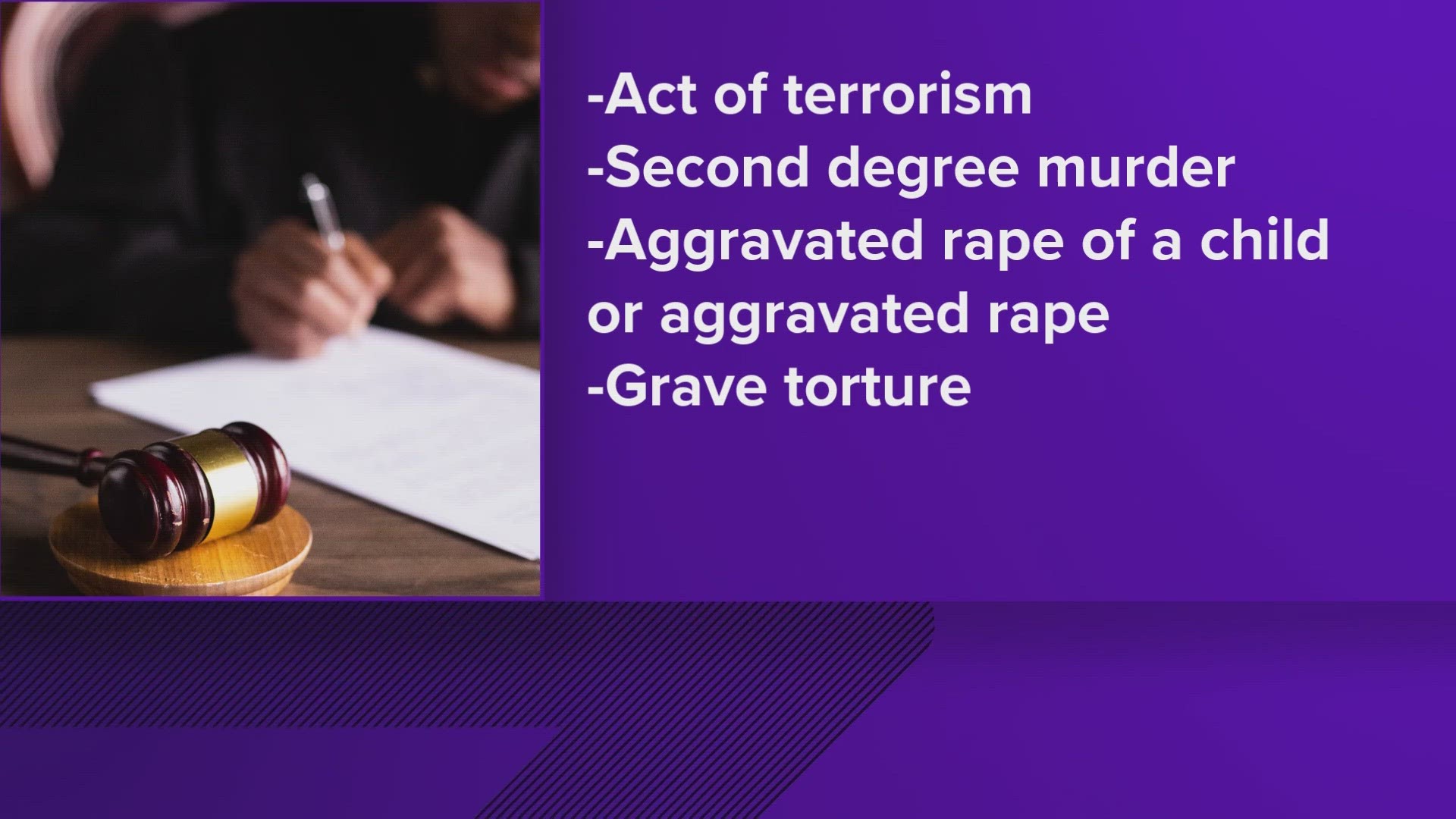NASHVILLE, Tenn. — Tennessee lawmakers decided to ask state voters whether they wanted to change the state's constitution, allowing judges to deny bail for people charged with some crimes as their cases go through the courts.
SJR 0919 was proposed by Sen. Jack Johnson (R - Franklin). The proposal's House counterpart, HJR 0859, was proposed by Speaker Cameron Sexton (R - Crossville). If it passes, people facing some charges may not be allowed to post bail in Tennessee and leave custody as their case goes through the court system.
The types of crimes that would be exempt from bail rights are listed below.
- A capital offense
- An act of terrorism
- Second-degree murder
- Aggravated rape of a child
- Aggravated rape
- Grave torture
- Any other offense for which, as of Nov. 3, 2026, a defendant, if convicted, could not be released prior to the expiration of at least eighty-five percent of the entire sentence imposed.
The current section of the Tennessee Constitution says all prisoners "shall be bailable by sufficient sureties, unless for capital offences, when proof is evident, or presumption great." If the bill passes, judges would be able to choose if a person should be given a chance to post bail rather than people implicitly having the right to it.
The amendment would also include a section that says in cases where bail is granted or denied, either a judge or magistrate would need to record reasons for their decision. It would also keep a part of the state Constitution preserving Habeus Corpus privileges, except for cases involving "rebellion or invasion."
According to the Tenessee Secretary of State's Office, amendments to the state constitution need to go through more than a vote by lawmakers. Amendments must also go through a popular vote and be listed on a ballot before the Constitution can change. So even though lawmakers passed it in the House and Senate, there are additional steps before the proposal can go into effect.
The amendment must get more "yes" votes than "no" votes from state voters, and the number of "yes" votes must be a majority of the total votes in the previous gubernatorial election.
"The Constitutional amendment fails if the number of yes votes does not meet or exceed the threshold or if there are more no votes than yes votes," the Secretary of State's Office said.
In the Senate Judiciary Committee, Johnson said he would hope the amendment would be rarely utilized, since it would be reserved for only extreme crimes.
"In my view, this gives an additional tool in the toolbox of our judges in those most heinous of instances to be able to deny that," said Johnson. "It's my hope that this would be very rarely used because those crimes are not being committed that particularly often."
In the House, Jeffrey Clayton, the Executive Director of the American Bail Coalition, also spoke on the bill.
"The history of this Constitutional Amendment lasts for 809 years," he said. "The language in the Tennessee Constitution is called 'The Ancient Rule.' It dates to 1215. That language was written at the Magna Carta ... Really, it's to protect the presumption of innocence."
He also said he wanted the amendment to list the specific crimes that may be excluded from bail rights.
"We think regardless of where you land on this, give voters and the people certainty. And remember, you can't change it after this round, so you gotta get it right the first time," he said.

